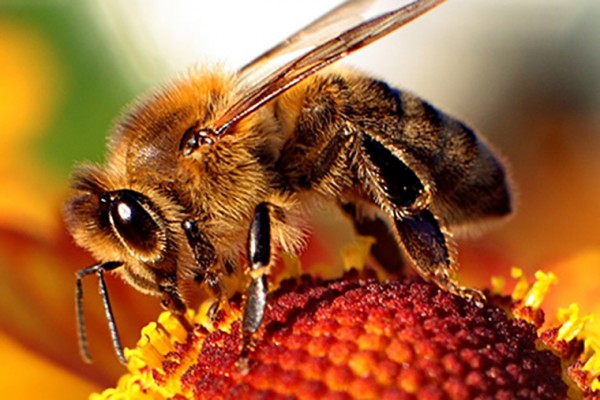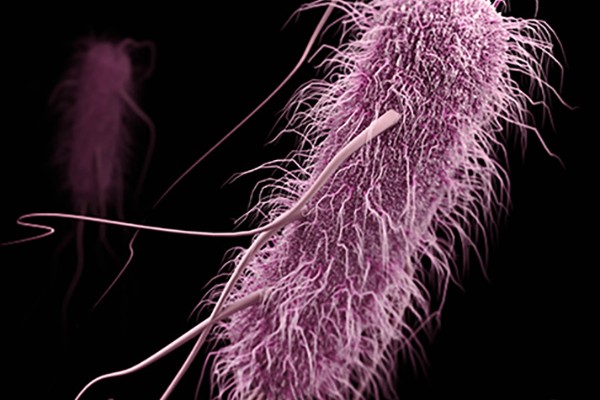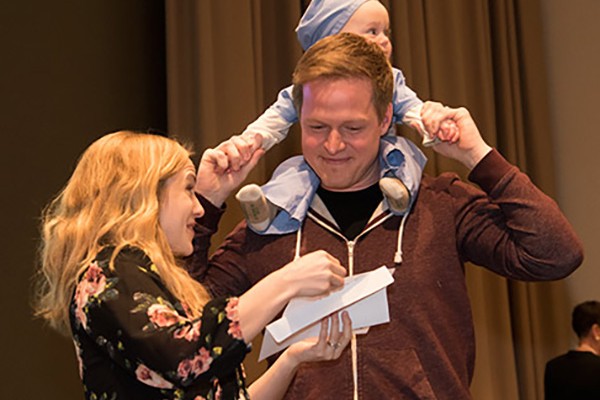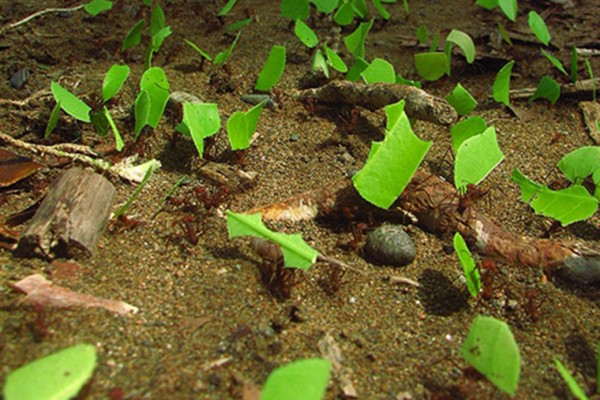Garb appears on ‘Who Do You Think You Are’
Margaret Garb, PhD, associate professor of history in Arts & Sciences, will be featured on the genealogy program “Who Do You Think You Are” Sunday, March 29. The episode centers on actor Sean Hayes (“Will & Grace”) and Irish immigrants in Chicago.
Manganese speeds up honey bees
The industrial metal manganese, once scarce, is now ubiquitous in our environment. New work suggests that it addles honey bees, which often act as sentinel species for environmental contaminants, even at levels considered safe for humans.
Common bacteria on verge of becoming antibiotic-resistant superbugs
Antibiotic resistance is poised to spread rapidly around the globe among bacteria frequently implicated in respiratory and urinary infections in hospital settings, according to new research at the School of Medicine.
Match Day reveals medical students’ next moves
Match Day, when medical students across the country find out where they will head for their residency programs, was March 20. At the School of Medicine, more than 120 students gathered for the delivery of envelopes that contained news of where the soon-to-be graduates had matched. Shown is medical student Justin Krogue and his family.
The power of storytelling: LeVar Burton to speak April 2 as part of Assembly Series
An entire generation grew up watching the hit PBS show “Reading Rainbow” from 1983-2006, but a new generation of children have vastly different technological skills and habits. Not a problem for LeVar Burton, who has combined the power of storytelling with today’s advancements in technology to boost the “Reading Rainbow” franchise. That will be the subject of his lecture for the Washington University in St. Louis Assembly Series at 7 p.m. Thursday, April 2, in Graham Chapel on the Danforth Campus.
‘For the Sake of All’ project receives $100,000 gift from Wells Fargo
“For the Sake of All,” the multidisciplinary project begun in 2013 that examined and now aims to improve the health and well-being of African Americans in St. Louis, has received a $100,000 gift from Wells Fargo Advisors. The gift will further the project’s reach into the community by facilitating conversations with, and giving voice to, young people in the region.
Radiation oncology directors named at Siteman
Siteman Cancer Center’s parent institutions have named two new leaders in radiation oncology. Dan Kinzel is executive director of radiation oncology at Washington University School of Medicine. Sharon Endicott is director of radiation oncology for Barnes-Jewish Hospital.
Legal scholar: Father’s rights movement led to reform in family law
Little is known about how heterosexual men navigated dramatic changes in the legal regulation of families in the 1980s. A new paper by Deborah Dinner, JD, associate professor of law at Washington University in St. Louis, provides the first legal history of the father’s rights movement, analyzing how middle-class white men responded to rising divorce rates by pursuing reform in both family law and welfare policy.
Resurrecting the past: Evolutionary biologist Shapiro to speak for Assembly Series
At the forefront of ancient DNA research is
evolutionary biologist and MacArthur Fellow Beth Shapiro, DPhil, who
will deliver the annual Ferguson Science Lecture at 5 p.m. Tuesday,
March 31, in Knight/Bauer Hall’s Emerson Auditorium. The program, free
and open to the public, is co-sponsored by the Woman’s Club of
Washington University.
Is blood really thicker than water?
The outcome of a duel between mathematical models supports the reigning theory of the genetics of altruism. Called inclusive fitness, it says altruism is competitive if it benefits relatives carrying the same gene as the selfless individual. Attacked by a Nature article published in 2010, it is defended by Washington University evolutionary biologist David Queller.
View More Stories




